Singer-songwriter Tim Bluhm himself affirms below in this new interview with Grateful Web: “I never come up short when it comes to songs.” And It’d be really hard to discredit the man. The California-bred musician has been touring professionally for the better part of thirty years, many of those as the frontman for the legendary Mother Hips, but also during that time as a prolific individual artist, putting his unique mark on modern country. Later this month, Bluhm will release his brand-new solo album, Sorta Surviving, on March 29, which features the new singles he has recently released, in addition to a few fantastic covers. The album release will come with a tour through California starting on the same day and stretching through the beginning of April.
Ahead of all that, Bluhm talked briefly with Grateful Web and answered a few questions about the material on the record along with some of his current artistic inspirations.
GW: The record is almost out. How do you feel about the release coming out? Excited, nervous?
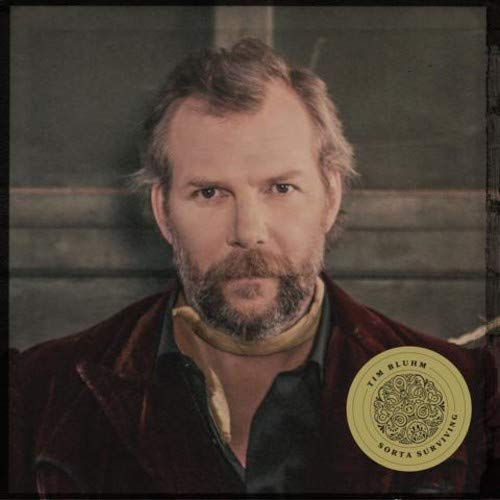
Tim: I’m excited to get it out, yeah. It’s been done for a while, and I’m definitely ready for people to listen to it. And maybe I should be nervous about it…I think people will like it, and hopefully, some people that I don’t even know about it will like it, that would be really cool. But people that already like my music, I think they’ll like it, even though it's a little bit different.
GW: Have you have chance to perform a lot of this material live yet?
Tim: I have. I’ve done it with a band, and I’ve done it a lot solo. It goes pretty good, I have to say, part of my goal for this record was to make sure that the songs would sound good playing them by myself, and of course, playing them with a band. But yeah, I think all of the songs on the record just kind of work as solo performance.
GW: For the album, you took it out to Tennessee to record. What prompted that move?
Tim: Well, I was definitely interested in doing a record outside of California. I’ve been involved with the making of lots and lots of records, and I don’t think any of them have ever been outside of California. And, Dave Schools the producer had just finished a Todd Snider record at the Cash Cabin, outside of Nashville, and he was fired up to go back there. So, when I heard about that, I was very interested in making a record at Cash’s studio.
GW: Do you have an idea about what Johnny Cash would’ve thought about your record?
Tim: (Laughs) I’d like to think he’d like it, for sure. But who the hell knows, you know? And that’s the thing, also. I’ve been a professional musician for like thirty years, and you don’t always get to totally love everything you do. But sometimes you just have to do what works.
GW: On a solo record, as opposed to something, say, with The Mother Hips, do you have to be the boss more than usual? And do you like that role?
Tim: Well, with The Mother Hips they’re still mostly my songs, although Greg writes some of the songs, too. But with them, there’s such an unspoken arrangement. We’ve been doing it for so long; I generally know exactly what they’re gonna say, or what they’re gonna do with a song. It is different because it’s a bit of a committee when it’s a band. You need to honor the contributions of all the band members, that’s what being in a band is. Otherwise, it’s not going to be a very fun band to be in, for anybody. So yeah, when you’re the solo artist, you are definitely expected to be more in charge. Although I wouldn’t say you have to be, especially when you’re surrounded by the caliber of musicians that I was lucky enough to be surrounded by.
GW: So the session musicians...did you find that you really connected with them, playing on this album? Or that they connected with your vision for the record?
Tim: Yeah, they did! Especially Dave Roe, the bass player. He was kind of like the quarterback, writing up all the charts and everything. He’s a really sincere guy, and I think he was into it. He certainly said some nice things about it. And Gene Chrisman he’s awesome, he reminded me of my Grampa. But all of the musicianship, really, it was exciting to watch the music being made. It would’ve been exciting even if they weren’t my songs, if I were just watching from the control room. They’re so damn good.
GW: I’ve gotten to see Jason Crosby perform a couple of times recently. He’s a very cool musician.
Tim: He really is, and I’ve been lucky enough to be his friend, and to have him play on pretty much all of my recordings since I’ve met him. He’s just such a pleasure to be around, and to listen to him play is rapture.
GW: How did you go about choosing the particular cover songs you did for this record? Did they resonate with the theme of the album, or were they ones you just enjoy doing?
Tim: They were just songs I just really enjoy doing. I have mixed feelings about putting cover songs, especially multiple cover songs, on a record. That’s the first time I’ve put more than one cover on a record. Because I have so many songs, I never come up short when it comes to songs, and that was the case for this record as well, I had plenty of songs. And when you’re choosing songs, you just have to be as objective as you can and choose which recordings sound the best. That’s really what matters; it doesn’t matter who wrote them at that point.

GW: Were you aiming to emulate the covers’ original style, or do them totally in a new way?
Tim: A little bit of both. One of the covers from the record, “Kern River,” is probably the most faithful to the original recording, the arrangement and the structure and all that. “I Still Miss Someone,” which is the Johnny Cash cover, Jason Crosby and I sort of rearranged that song. We put a couple of different chords underneath the same melody, and so it has a bit of a different feeling. I think it’s a little more mournful than the original. The original is a little sad, too, but musically it’s not. It’s jaunty. And I wanted to see what would happen if we made the chords a little sadder.
GW: Actually, this is brings to mind “Where I Parked My Mind,” from the album. I think that song is a good example of something that sounds very laid back and almost cheerful, while the lyrics are telling something totally different. I really like when that happens in music, that duality.
Tim: Oh yeah, I do too. I like how the colors of a song can make you feel one way, and the lyrical content another way, and they don’t always work in unison, sometimes they’re out of phase. For “I Still Miss Someone,” what I was trying to do was, there’s this Neil Young song…well he didn’t write it but there’s this recording of “Oh Lonesome Me,” and I can’t remember who wrote it but I’d like to have that down on the record so hold on a second….
GW: Don something...
Tim: Don Gibson, right! So, I didn’t know it was a cover, at first listening to the record, but it’s so sad, and Neil makes it his own in such a cool way. And then when I found out it was a Don Gibson song, and I heard his version of it, it was that thing where the tone of the music didn’t really match the mournfulness of the lyrics. And the way I was used to hearing it, with Neil sounding like he’s just about to start crying, I always thought that was so cool how he did that, I always admired that. I came to thinking over the years that I want to try and find a song that I could try and do something like that too, and so Jason helped me do it with “I Still Miss Someone.” I don’t know if we succeeded, but that’s kind of what I was going for.”
GW: I think you did succeed. It’s a nice version.
Tim: Well thank you for that. (Laughs) I was nervous though, because Johnny Cash’s son, John Carter Cash, he lives on the property there and he came down to hear that version of the song, so I was super nervous. He’s super nice, but he’s kind of intimidating. But he sat down at the desk and listened to it. He said it sounded like “Bridge Over Troubled Water.”









